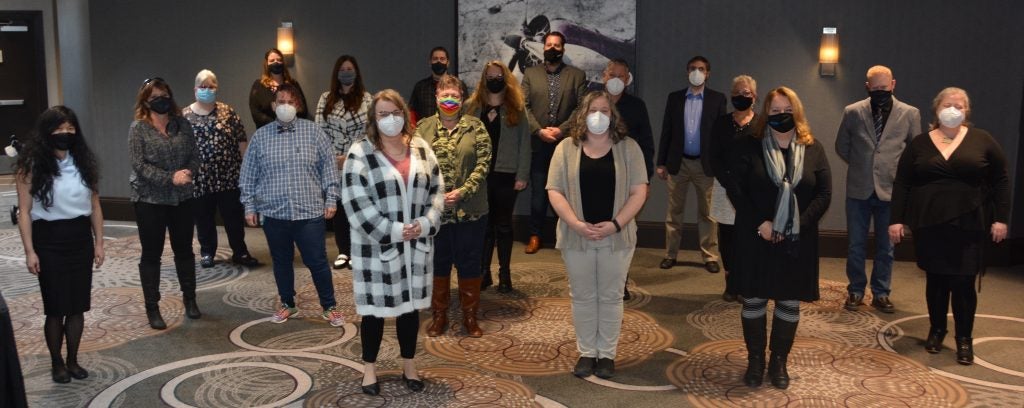
Bargaining for a new provincial framework agreement for K-12 school support workers began this week. The K-12 provincial bargaining committee met with their counterparts from the B.C. Public School Employers’ Association for three days of face-to-face, safely distanced discussions.
The K-12 bargaining committee tabled a comprehensive set of proposals, based on the priorities set out by K-12 locals and the provincial bargaining survey. In opening the talks, the committee had a clear message for what needs to be accomplished in this round bargaining.
“School support staff have done an exceptional job keeping our schools clean, healthy, and open for students during the pandemic, in particular for the children of emergency support workers, and vulnerable students,” says Paul Simpson, president of the K-12 Presidents Council and chair of the bargaining committee. “But after two years, support staff are now exhausted and need meaningful solutions to their urgent issues. The top issue among them – the need for fair and reasonable wages that recognize the vital role school support workers play in our communities.”
The first meetings were very productive, with constructive and cooperative discussions on a wide range of issues. Both committees voiced a strong desire to reach an agreement at the table that will lay the groundwork for a successful local bargaining to follow across the province.
The bargaining committees will be meeting again next week for another three days, and then again March 1 – 3. The K-12 bargaining committee will be sending out regular bulletins as negotiations progress. Watch for them at bcschools.cupe.ca, directly from your local, and on our social media – @cupek12bc.
View PDF.
